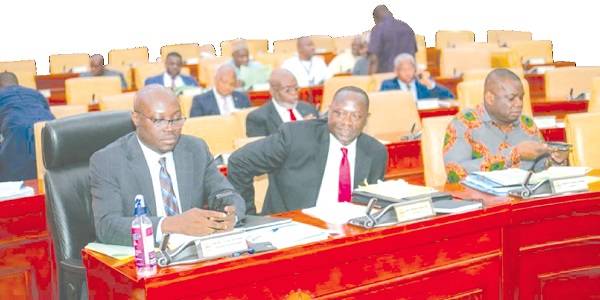The Eighth Parliament is rather exceptional. The present balance of power is 137 New Patriotic Power (NPP), 136 National Democratic Congress (NDC), and one independent candidate, pending the outcome of the lawsuit against the NDC member of parliament for Assin North.
The remaining votes are 138 (NPP) and 136, with the one independent caucusing with the NPP majority (NDC). As the NDC Parliamentarians supported the President's six candidates for various ministry positions on March 24, the party is now grappling with two problems: (a) a harsh public reaction; and (b) the appearance of splits within the party.
Expectations
In your opinion, how likely or unlikely is it that the current Parliament with the NPP and NDC having an equal number of seats will- a) force or ensure full attendance of all MPs during sitting in parliament; b) improve the practise of parliamentary democracy, thereby enhancing democratic development; c) keep the executive in check; and d) aid scrutiny of international relations?" asked the Center for Democratic Development (CDD-Ghana) in a post-election survey in 2021. Eight out of ten Ghanaians (80%) anticipated progress on the first three. Seven in ten (73%) Ghanaians anticipated to see changes on the fourth, facilitating monitoring of overseas contracts.
To put it briefly, Ghanaians had great hopes for the 8th parliament. According to popular discourse, there was also a belief that the time of "the minority will have its voice, but the majority will have its way" would come to an end.
political environment
There are 136 seats held by the NDC. This implies that the NDC minority will always lose the vote on any legislative subject, even if all 275 Members of Parliament (MPs) attend and vote completely along party lines. The first political fact it must deal with is that.
The government must contend with a majority that is fiercely dedicated to implementing a number of its policies, which is the second political reality it must contend with. The final passage of the E-Levy after multiple delays made that extremely evident.
Consider the approval of the Fiscal Year 2022 (FY2022) budget as an example. This budget was marked by an early walkout, a rejection by the NDC minority, a revocation of the vote, and a final passage.
The censure vote against the Finance Minister serves as a last illustration. None of them voted in favour of the resolution, despite the fact that some majority Members had publicly called for the dismissal of the finance minister. In other words, the majority has demonstrated that, barring member absenteeism, there won't be any voting against them on legislative issues that they believe to be in the minority's best interests.


